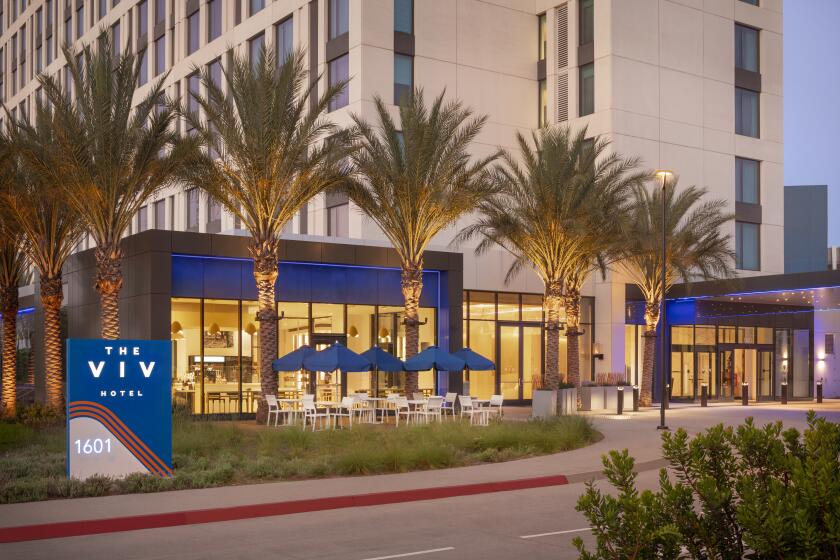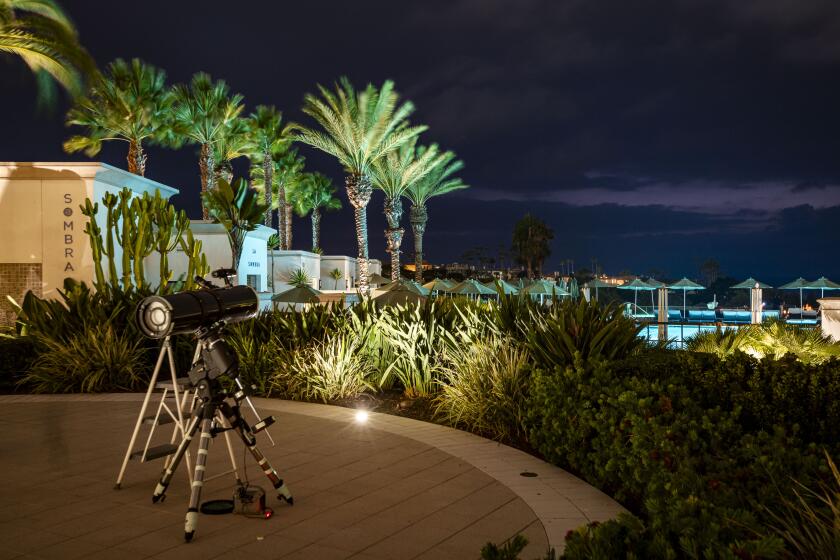South Korean government helps fund Irvine language institute
When Irvine’s Korean American Center started offering adult Korean-language classes two-and-a-half years ago, the idea was to provide second- and third-generation Korean Americans who only speak English a way to learn their ancestors’ native tongue.
The program began with 10 students, and then quickly ballooned to 90.
Now, the waitlist is more than 400 long.
And just like enrollment numbers, reasons for attending the language classes — which include “Korean through K-Pop” and “Korean through K-Drama” — have also expanded.
Instead of a predominantly Korean-American student body, which was envisioned at the outset of the program, an estimated three-quarters of learners are non-Koreans who are interested in the culture or developing a new skill for work.
This fall, the Korean American Center will scale up its work to meet the growing demand for Korean language classes in Orange County with the help of the South Korean government.
Now officially recognized by the King Sejong Institute — which is part of South Korea’s Ministry of Culture, Sports and Tourism — KAC will hire more teachers, strengthen its curriculum, offer study-abroad opportunities and host more cultural events. The center is affiliated with Korean Community Services in Buena Park.
“We’re hoping we can provide even greater access and visibility in promoting the Korean language and culture,” said Tammy Kim, managing director of KAC, noting that Orange County has the second-largest Korean community in the United States after Los Angeles.
Since 2012, King Sejong Institutes have been established in more than 50 countries around the world to teach the Korean language. The United States only has a handful, including at the Korean Cultural Center in Los Angeles. This year, KAC’s language program — which has been renamed the Irvine King Sejong Institute at Korean American Center — was the only U.S. program selected for the designation.
“When people are studying with us, and when teachers teach for us, they’ll know they’re working with an institution that is recognized and accredited by Korea,” said Kim.
Jini Shim, who has been teaching Korean at KAC for the past year, said that for Korean Americans, one benefit is reconnecting to ancestral roots.
“Even if you have never been to Korea, or all your relatives are in the United States, so you don’t have any family or personal connections to Korea,” she said, “there is something that you benefit from by learning about where you come from.”
As an immigrant from Korea, Shim — who came to the United States when she was 10 years old — said that growing up, she, like many other Korean Americans, felt the need to assimilate. But now she and others want to reclaim that heritage.
“When we become adults, we want to go back and assimilate to our roots,” she said.
The language program offers five levels, starting at absolute beginner.
Many of KAC’s non-Korean students, meanwhile, work for Korean companies, such as Hyundai and Kia, which have offices in Fountain Valley and Irvine, respectively, as well as the Irvine-based video game developer Blizzard Entertainment, which has a large customer base in South Korea, and see learning the language as an opportunity for professional advancement.
Others come to the language because of their interest in the culture, while others are married to Koreans and want to better communicate with their in-laws.
“It’s about opening people up to learning about Korea,” said Kim, “especially those who may not have friends who are Korean, and don’t know anything about it.”
Caitlin Yoshiko Kandil is a contributor to Times Community News.
All the latest on Orange County from Orange County.
Get our free TimesOC newsletter.
You may occasionally receive promotional content from the Daily Pilot.



